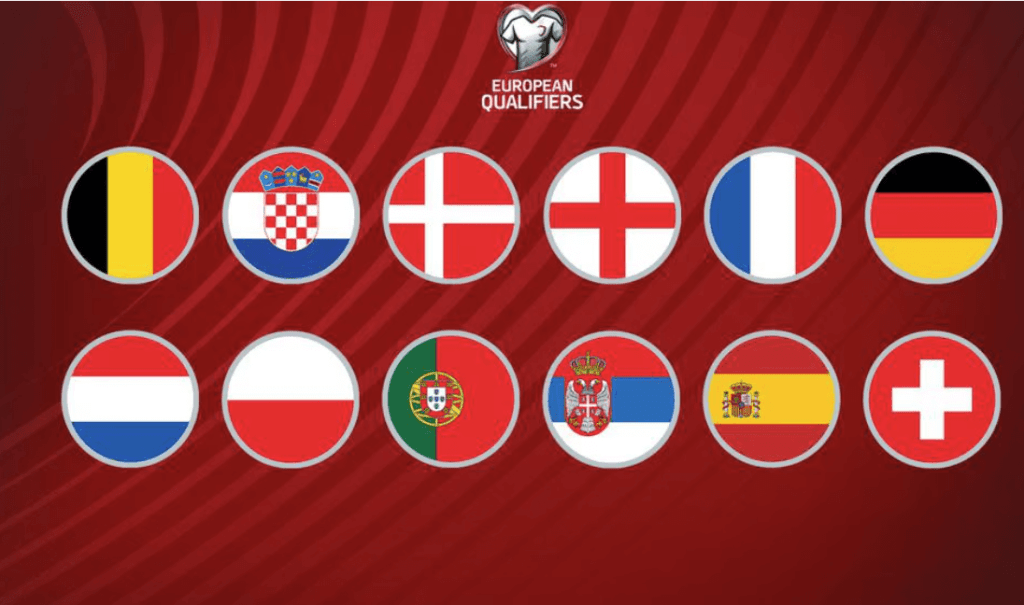The 2026 FIFA World Cup Qualification (UEFA) is famed for its intensity, where legends are made and dreams are shattered.
As the World Cup is known as football’s ultimate stage, the road to qualification is as dramatic as the tournament itself.
This is especially evident in UEFA, where Europe’s established giants and ambitious new contenders compete for a place in the world’s most prestigious sporting event.
With 16 European slots at stake for the 2026 World Cup, rivalries and decisive battles will shape the road to North America’s fixtures.
Revisit UEFA’s qualification history and what’s at stake as the September 2025 matches carry extra weight for what lies ahead.
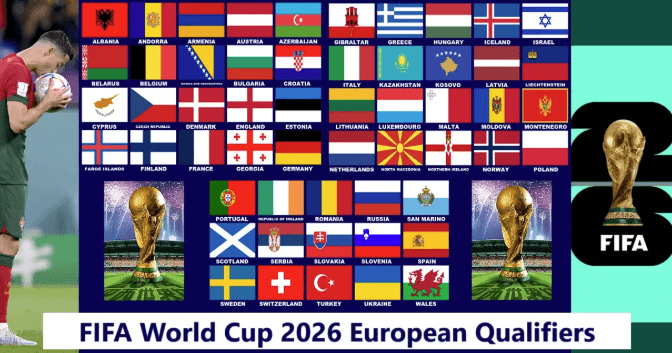
2026 FIFA World Cup qualifiers (UEFA) schedule
| Matchday | Date | Fixture (Group) | Venue | Time |
|---|---|---|---|---|
| 5 | September 4, 2025 | Kazakhstan vs Wales (J) | Astana Arena, Astana | 20:45 (21:45 UTC+3) |
| September 4, 2025 | Georgia vs Turkey (E) | Boris Paichadze Dinamo Arena, Tbilisi | 18:00 (20:00 UTC+4) | |
| September 4, 2025 | Slovakia vs Germany (A) | Tehelne Pole, Bratislava | 20:45 | |
| September 4, 2025 | Bulgaria vs Spain (E) | Vasil Levski National Stadium, Sofia | 20:45 (21:45 UTC+3) | |
| September 4, 2025 | Netherlands vs Poland (G) | De Kuip, Rotterdam | 20:45 (21:45 UTC+3) | |
| September 4, 2025 | Luxembourg vs Northern Ireland (A) | Stade de Luxembourg, Luxembourg City | 20:45 | |
| September 4, 2025 | Lithuania vs Malta (G) | Darius and Girenas Stadium, Kaunas | 20:45 (21:45 UTC+3) | |
| 6 | September 5, 2025 | Switzerland vs Kosovo (B) | St. Jakob-Park, Basel | 20:45 |
| September 5, 2025 | Denmark vs Scotland (C) | Parken Stadium, Copenhagen | 20:45 | |
| September 5, 2025 | France vs Ukraine (D) | Tarczynski Arena Wroclaw, Poland | 20:45 | |
| September 5, 2025 | Italy vs Estonia (I) | Stadio Atleti Azzurri d’Italia, Bergamo | 20:45 | |
| September 5, 2025 | Slovenia vs Sweden (B) | Stozice Stadium, Ljubljana | 20:45 | |
| September 6, 2025 | England vs Andorra (K) | Villa Park, Birmingham | 18:00 (17:00 UTC+1) | |
| September 6, 2025 | Armenia vs Portugal (F) | Vazgen Sargsyan Republican Stadium, Yerevan | 18:00 (20:00 UTC+4) | |
| September 6, 2025 | Ireland vs Hungary (F) | Aviva Stadium, Dublin | 20:45 (19:45 UTC+1) | |
| September 6, 2025 | Austria vs Cyprus (H) | Raiffeisen Arena, Linz | 20:45 | |
| September 6, 2025 | San Marino vs Bosnia & Herzegovina (H) | San Marino Stadium, Serravalle | 20:45 | |
| 7 | September 7, 2025 | Georgia vs Bulgaria (E) | Boris Paichadze Dinamo Arena, Tbilisi | 15:00 (17:00 UTC+4) |
| September 7, 2025 | Germany vs Northern Ireland (A) | Rhein Energie Stadion, Cologne | 20:45 | |
| September 7, 2025 | Turkey vs Spain (E) | Konya Metropolitan Municipality | 20:45 (21:45 UTC+3) | |
| September 7, 2025 | Belgium vs Kazakhstan (J) | Planet Group Arewnanjn | 20:45 | |
| September 7, 2025 | Poland vs Finland (G) | Silesian Stadium, Chorzow | 20:45 | |
| 8 | September 8, 2025 | Israel vs Italy (I) | Nagyerdei Stadion, Debrecen, Hungary | 20:45 |
| September 8, 2025 | Kosovo vs Sweden (B) | Fadil Vokrri Stadium, Pristina | 20:45 | |
| September 8, 2025 | Greece vs Denmark (C) | Karaiskakis Stadium, Piraeus | 20:45 | |
| September 8, 2025 | Croatia vs Montenegro (L) | Stadion Maksimir, Zagreb | 20:45 | |
| September 9, 2025 | France vs Iceland (D) | Parc des Princes, Paris | 20:45 | |
| September 9, 2025 | Hungary vs Portugal (F) | Puskas Arena, Budapest | 20:45 | |
| September 9, 2025 | Serbia vs Englnd (K) | Red Star Stadium, Belgrade | 20:45 | |
| September 9, 2025 | Norway vs Moldova (I) | Ullevaal Stadion, Oslo | 20:45 |
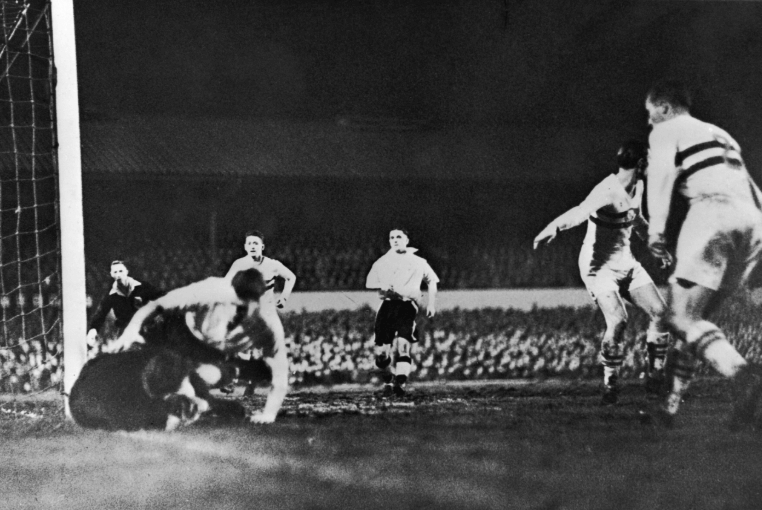
What is UEFA all about?
The Union of European Football Associations (UEFA) is the governing body of football in Europe and one of FIFA’s six continental confederations.
Founded in 1954 in Basel, Switzerland, UEFA was established to unify Europe’s national football associations and organize competitions under a single umbrella.
UEFA is recognized for overseeing elite tournaments, including the UEFA Champions League, Europa League, and the European Championship (also known as EUROs).
Since the 1958 World Cup, UEFA has officially organized Europe’s qualification pathway, setting the stage for football’s most competitive regional qualifying tournament.
With its current 55 member organizations, UEFA provides both traditional powers and smaller nations a chance to fight for a coveted World Cup spot.
See also:
- FIFA World Cup Qualifiers Asia: AFC’s road to greatness
- FIFA World Cup CONCACAF Qualifiers: Race for greatness begins
- FIFA World Cup Qualifiers Africa: History and what lies ahead
- FIFA World Cup qualifiers CONMEBOL games: Rivalries renewed
- FIFA World Cup 2026 draw date: What it means for U.S., global football
- Top 10 FIFA World Cup records: Milestones that may stand forever
- FIFA stadium to have covered roof against heat concerns: Infantino
- Trump’s immigration policy could undermine Canada in World Cup
- FIFA World Cup 2026 could be ‘most climate damaging’: report
- World Cup history: Past winners, memorable moments and records
- FIFA World Cup 2026 hospitality packages revealed, Here’s what on Offer
Why is UEFA the toughest road to the World Cup?
UEFA’s qualification process has long been regarded as the toughest in world football.
Unlike other confederations, Europe boasts a deep pool of world-class teams – Germany, Italy, France, Spain, England, Portugal, and the Netherlands.
Additionally, a rising generation of nations, such as Croatia, Denmark, and Switzerland, further makes every qualifying group feel like a mini-tournament.
Historically, UEFA has dominated the World Cup stage, with European nations lifting the trophy 13 times, including every edition since 2006.
Yet despite this dominance, the path to qualification remains unforgiving, with some great teams stumbling along the way the past few years.
2026 FIFA World Cup Qualification (UEFA): Groupings
Group A
| Position | Team | Matches Played | WIns | Draw | Losses | Points | Qualification |
|---|---|---|---|---|---|---|---|
| 1 | Germany | 0 | 0 | 0 | 0 | 0 | 2026 FIFA World Cup |
| 2 | Slovakia | 0 | 0 | 0 | 0 | 0 | Advance to play-offs |
| 3 | Northern Ireland | 0 | 0 | 0 | 0 | 0 | |
| 4 | Luxembourg | 0 | 0 | 0 | 0 | 0 |
Group B
| Position | Team | Matches Played | WIns | Draw | Losses | Points | Qualification |
|---|---|---|---|---|---|---|---|
| 1 | Switzerland | 0 | 0 | 0 | 0 | 0 | 2026 FIFA World Cup |
| 2 | Sweden | 0 | 0 | 0 | 0 | 0 | Advance to play-offs |
| 3 | Slovenia | 0 | 0 | 0 | 0 | 0 | |
| 4 | Kosovo | 0 | 0 | 0 | 0 | 0 |
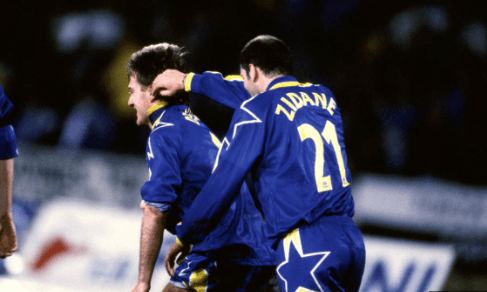
Legendary UEFA qualification campaigns
Some UEFA qualification stories are etched into football folklore.
Italy’s dominant campaigns in the 1980s and early 2000s showcased consistent and tactical brilliance.
France’s road to hosting – and winning – the 1998 World Cup remains iconic, with stars like Zinedine Zidane and Didier Deschamps leading the way.
Portugal, powered by Cristiano Ronaldo, has also produced memorable moments from last-minute winners to clutch playoff goals.
Smaller nations have also written their names into history – most notably Iceland, whose stunning run to the 2018 World Cup inspired underdogs across Europe.
Group C
| Position | Team | Matches Played | WIns | Draw | Losses | Points | Qualification |
|---|---|---|---|---|---|---|---|
| 1 | Denmark | 0 | 0 | 0 | 0 | 0 | 2026 FIFA World Cup |
| 2 | Greece | 0 | 0 | 0 | 0 | 0 | Advance to play-offs |
| 3 | Scotland | 0 | 0 | 0 | 0 | 0 | |
| 4 | Belarus | 0 | 0 | 0 | 0 | 0 |
Group D
| Position | Team | Matches Played | WIns | Draw | Losses | Points | Qualification |
|---|---|---|---|---|---|---|---|
| 1 | France | 0 | 0 | 0 | 0 | 0 | 2026 FIFA World Cup |
| 2 | Ukraine | 0 | 0 | 0 | 0 | 0 | Advance to play-offs |
| 3 | Iceland | 0 | 0 | 0 | 0 | 0 | |
| 4 | Azerbaijan | 0 | 0 | 0 | 0 | 0 |
Upsets and shock eliminations in UEFA qualifiers
UEFA qualifiers are renowned not only for their dominance but also for their heartbreaks.
One of the biggest shocks came in 2017, when Italy failed to qualify for the 2018 World Cup after losing to Sweden in the playoffs.
The Netherlands also suffered painful setbacks, missing out on both the 2002 and 2018 World Cups.
England also faced disappointment in 1994 when they were eliminated after a difficult campaign.
These shocks illustrate the unforgiving nature of UEFA qualification – every point matters, and even the biggest teams can lose.
Group E
| Position | Team | Matches Played | WIns | Draw | Losses | Points | Qualification |
|---|---|---|---|---|---|---|---|
| 1 | Spain | 0 | 0 | 0 | 0 | 0 | 2026 FIFA World Cup |
| 2 | Turkey | 0 | 0 | 0 | 0 | 0 | Advance to play-offs |
| 3 | Georgia | 0 | 0 | 0 | 0 | 0 | |
| 4 | Bulgaria | 0 | 0 | 0 | 0 | 0 |
Group F
| Position | Team | Matches Played | WIns | Draw | Losses | Points | Qualification |
|---|---|---|---|---|---|---|---|
| 1 | Portugal | 0 | 0 | 0 | 0 | 0 | 2026 FIFA World Cup |
| 2 | Hungary | 0 | 0 | 0 | 0 | 0 | Advance to play-offs |
| 3 | Republic of Irelan | 0 | 0 | 0 | 0 | 0 | |
| 4 | Armenia | 0 | 0 | 0 | 0 | 0 |
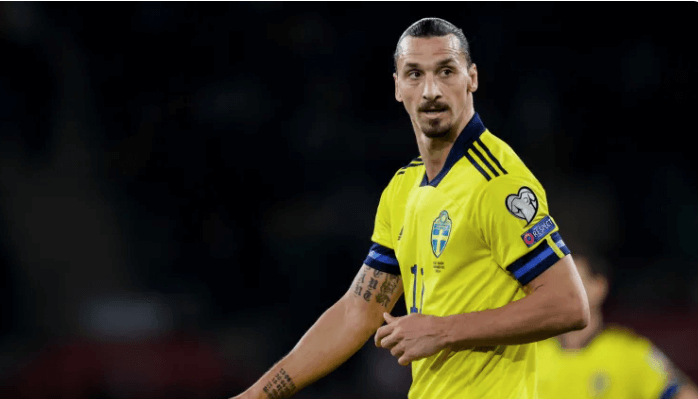
2026 FIFA World Cup Qualification (UEFA): Star players who thrived on the big stages
Individual brilliance has often defined the UEFA qualifiers.
Cristiano Ronaldo is the all-time leading scorer in European qualification, consistently leading Portugal with key goals.
Zlatan Ibrahimovic provided Sweden with countless magical moments in the qualifiers, despite never lifting a World Cup trophy.
On the other hand, England’s Wayne Rooney and Germany’s Miroslav Klose also left their mark with memorable goals in the past.
The September 2025 qualifiers will feature emerging stars, including France’s Kylian Mbappé, Norway’s Erling Haaland, and England’s Harry Kane.
Group G
| Position | Team | Matches Played | WIns | Draw | Losses | Points | Qualification |
|---|---|---|---|---|---|---|---|
| 1 | Finland | 0 | 0 | 0 | 0 | 0 | 2026 FIFA World Cup |
| 2 | Netherlands | 0 | 0 | 0 | 0 | 0 | Advance to play-offs |
| 3 | Poland | 0 | 0 | 0 | 0 | 0 | |
| 4 | Lithuania | 0 | 0 | 0 | 0 | 0 | |
| 5 | Malta | 0 | 0 | 0 | 0 | 0 |
Group H
| Position | Team | Matches Played | WIns | Draw | Losses | Points | Qualification |
|---|---|---|---|---|---|---|---|
| 1 | Bosnia & Herzegovinia | 0 | 0 | 0 | 0 | 0 | 2026 FIFA World Cup |
| 2 | Austria | 0 | 0 | 0 | 0 | 0 | Advance to play-offs |
| 3 | Romania | 0 | 0 | 0 | 0 | 0 | |
| 4 | Cyprus | 0 | 0 | 0 | 0 | 0 | |
| 5 | San Marino | 0 | 0 | 0 | 0 | 0 |
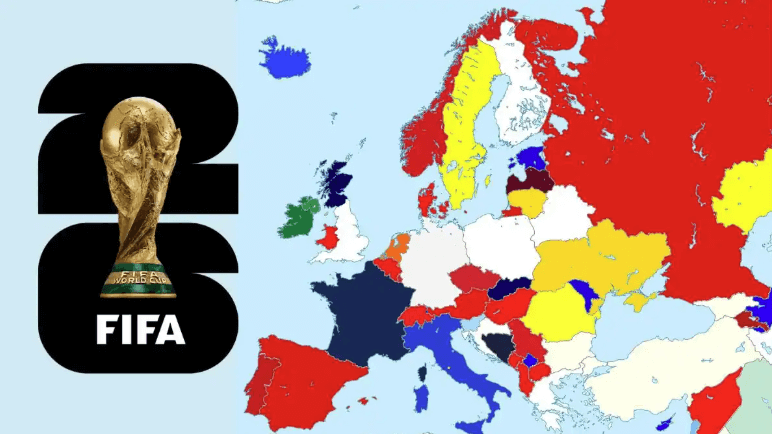
Format changes for 2026 FIFA World Cup qualification
The 2026 FIFA World Cup introduces a significant change: an expanded 48-team format, which will allocate 16 qualification slots to UEFA.
This is the largest number Europe has ever received, but it doesn’t mean qualification will be easy.
Teams are divided into groups, with the top finishers securing automatic spots, while others need to battle through playoffs.
With more competition and rising talent across Europe, qualification remains a steep challenge for every team.
The change means more matches, more drama, and a higher chance of seeing their country on football’s grandest stage.
Group I
| Position | Team | Matches Played | WIns | Draw | Losses | Points | Qualification |
|---|---|---|---|---|---|---|---|
| 1 | Norway | 0 | 0 | 0 | 0 | 0 | 2026 FIFA World Cup |
| 2 | Israel | 0 | 0 | 0 | 0 | 0 | Advance to play-offs |
| 3 | Italy | 0 | 0 | 0 | 0 | 0 | |
| 4 | Estonia | 0 | 0 | 0 | 0 | 0 | |
| 5 | Moldova | 0 | 0 | 0 | 0 | 0 |
Group J
| Position | Team | Matches Played | WIns | Draw | Losses | Points | Qualification |
|---|---|---|---|---|---|---|---|
| 1 | North Macedonia | 0 | 0 | 0 | 0 | 0 | 2026 FIFA World Cup |
| 2 | Wales | 0 | 0 | 0 | 0 | 0 | Advance to play-offs |
| 3 | Belgium | 0 | 0 | 0 | 0 | 0 | |
| 4 | Kazakhstan | 0 | 0 | 0 | 0 | 0 | |
| 5 | Liechtenstei | 0 | 0 | 0 | 0 | 0 |
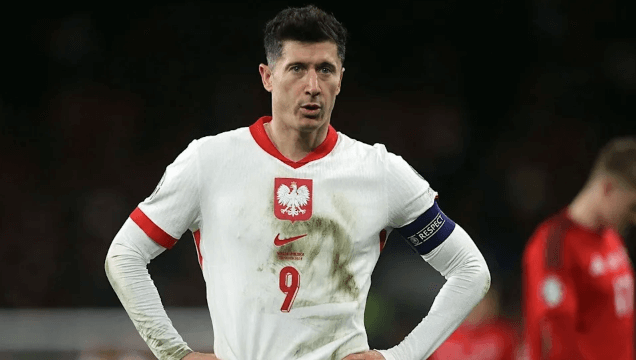
Finland vs Poland: A crucial Group G showdown
The Finland vs. Poland fixture on September 7, 2025, stands out as one of the more intriguing matchups in the upcoming UEFA World Cup qualifiers.
Historically, Poland has the upper hand based on its 24 wins, four losses, and eight draws in its 36 head-to-head matches against Finland.
Poland’s pedigree as a nation with multiple World Cup appearances, including semifinal runs in 1974 and 1982, distinguishes it.
On the other hand, Finland is still changing its first-ever World Cup appearance despite breaking through at UEFA EURO 2020.
Robert Lewandowski and a new wave of talent will lead Poland, which seeks to keep pace with the Netherlands at the top of the group.
Group K
| Position | Team | Matches Played | WIns | Draw | Losses | Points | Qualification |
|---|---|---|---|---|---|---|---|
| 1 | England | 0 | 0 | 0 | 0 | 0 | 2026 FIFA World Cup |
| 2 | Albania | 0 | 0 | 0 | 0 | 0 | Advance to play-offs |
| 3 | Serbia | 0 | 0 | 0 | 0 | 0 | |
| 4 | Latvia | 0 | 0 | 0 | 0 | 0 | |
| 5 | Andorra | 0 | 0 | 0 | 0 | 0 |
Group L
| Position | Team | Matches Played | WIns | Draw | Losses | Points | Qualification |
|---|---|---|---|---|---|---|---|
| 1 | Czech Republic | 0 | 0 | 0 | 0 | 0 | 2026 FIFA World Cup |
| 2 | Croatia | 0 | 0 | 0 | 0 | 0 | Advance to play-offs |
| 3 | Montenegro | 0 | 0 | 0 | 0 | 0 | |
| 4 | Faroe Islands | 0 | 0 | 0 | 0 | 0 | |
| 5 | Gibraltar | 0 | 0 | 0 | 0 | 0 |

2026 FIFA World Cup Qualification (UEFA): In retrospect
The FIFA World Cup UEFA qualification is more than just a pathway of European teams to football’s biggest stage – it is a living piece of history.
These qualifiers blend legendary past campaigns with the drama of present battles.
The 2026 FIFA World Cup qualification (UEFA) standings will determine fans’ expectations for decisive matches and renewed rivalries.
UEFA’s qualification journey never disappoints, whether it’s traditional powers seeking dominance or dark horses writing history.
For football fans, the September 2025 qualifiers are more than just fixtures – it’s the heartbeat of Europe’s road to the World Cup.
Visit our FIFA World Cup 2026 website for more football news and updates.
